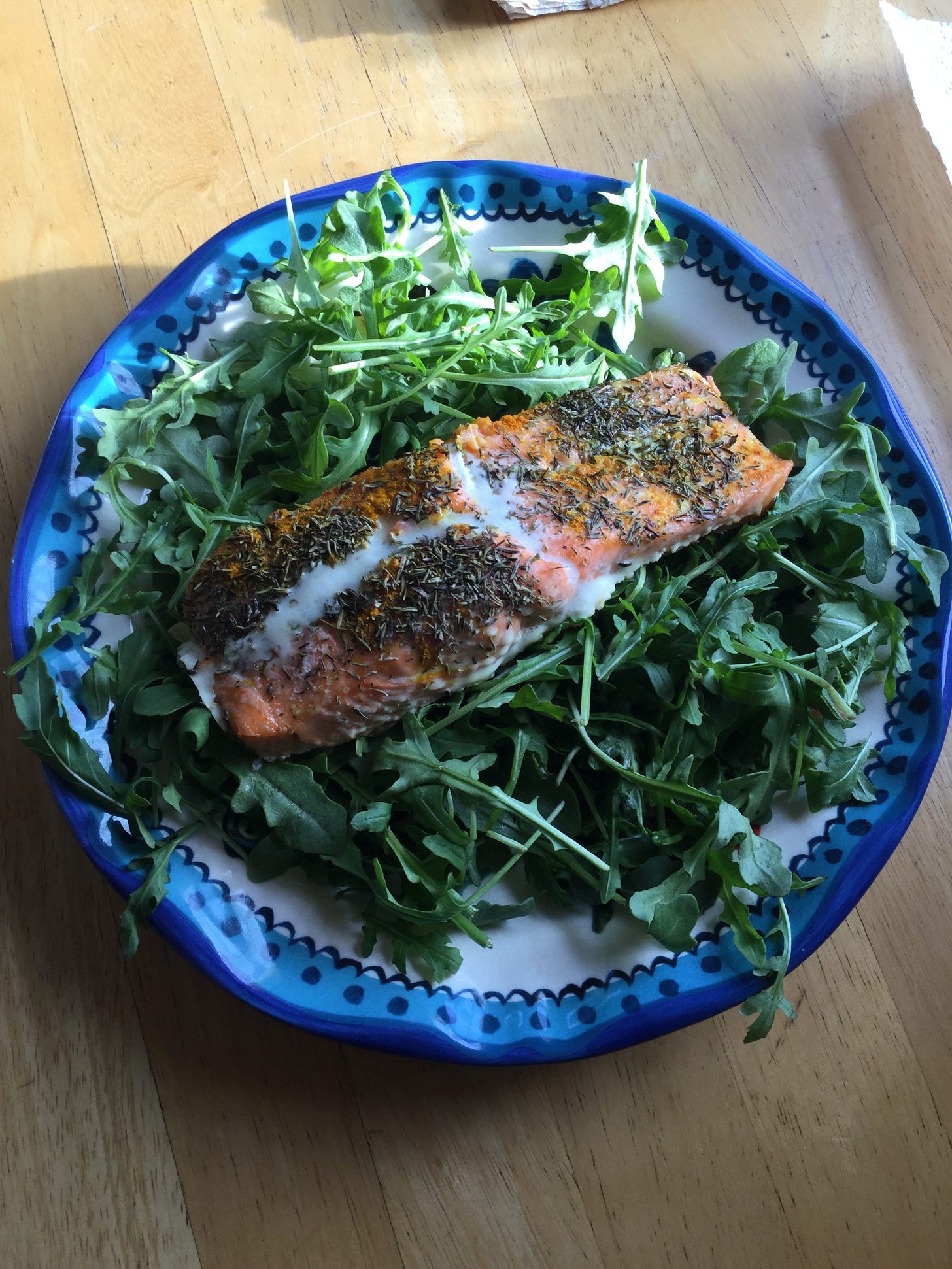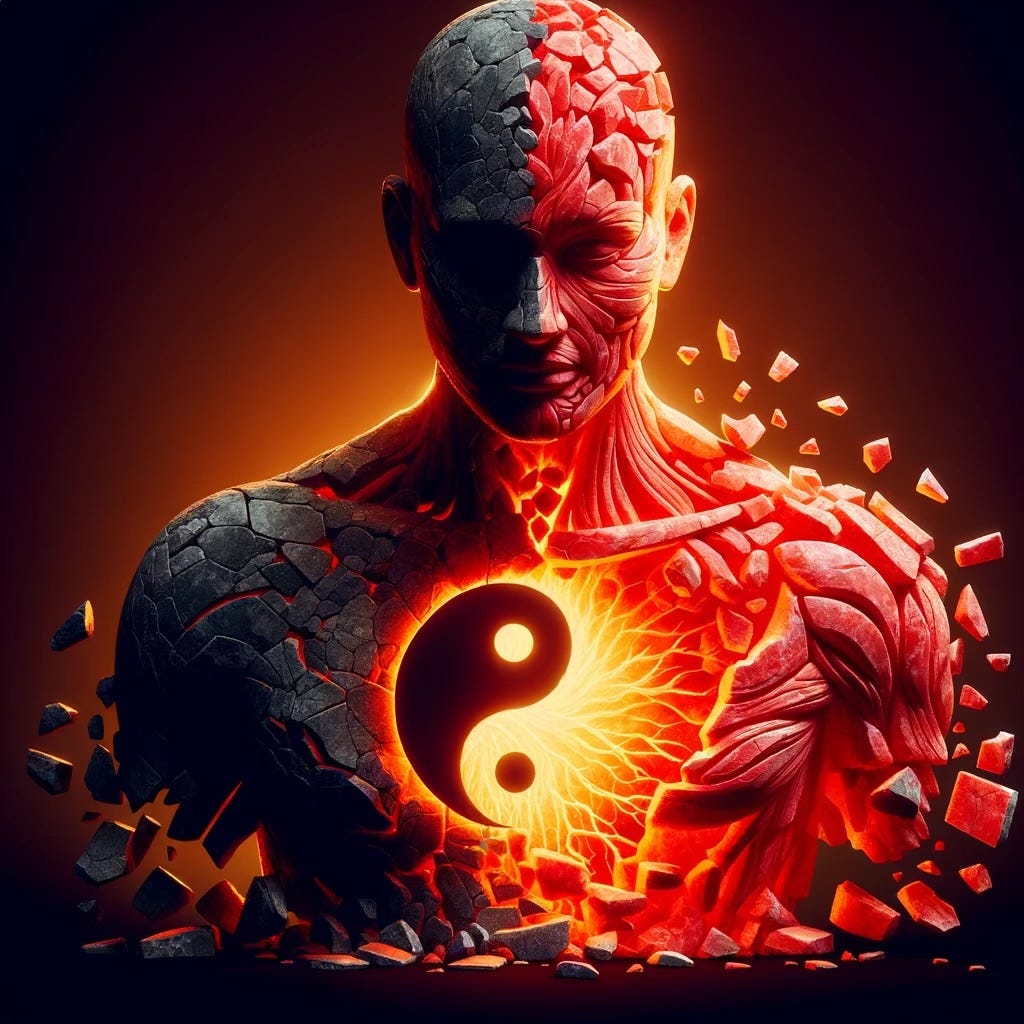For a good part of my life, I believed that self-care was the result of sheer willpower—eating well, exercising, and avoiding bad habits.
But as I’ve delved deeper into the principles of Chinese Medicine, I’ve discovered something profound: health is less about control and more about balance. It’s about creating equilibrium in a world constantly pushing us out of alignment.
This realization came to me during a period of heightened stress back in the 90s, where the wheels of my life seemed to wobble. Poor sleep, scattered eating habits, and emotional burnout made me feel like a shadow of myself.
No matter how many vitamins I popped or exercise routines I followed, I couldn’t reclaim the vitality I once had. What I didn’t understand then was that my body wasn’t failing—it was trying to communicate. My natural balance had been disrupted, and I needed to listen.
Homeostasis: The Dance of Yin and Yang
In Chinese Medicine, the concept of yin and yang is foundational. These two opposing forces—yin representing stillness, cooling, and nourishment, and yang symbolizing activity, heat, and transformation—exist in a dynamic interplay. When they are in harmony, the body thrives. When one dominates, disease and dysfunction creep in.
This equilibrium, known in Western terms as homeostasis, is the body’s natural state of balance. It’s not static but fluid—a dance of constant adjustments in response to our internal and external environment.
Heightened stress, poor diet, environmental toxins, or unresolved traumas can tip this balance, making us vulnerable to physical, emotional, and spiritual ailments.
Yet, the beauty of the human body lies in its innate ability to heal. If we create the right conditions—nurturing the yin, invigorating the yang, and supporting the flow of energy or qi—the body can return to its natural rhythm.
Five Holistic Chinese Medicine Practices for Restoring Balance
☯️ Qigong: This meditative movement practice which I am getting a teaching certification in combines gentle physical exercises, breathwork, and mental focus to harmonize qi. Through qigong, I’ve learned to calm my overactive mind (yang) and nurture my depleted energy reserves (yin). Even 15 minutes a day has dramatically improved my sense of grounding and vitality.
☯️ Acupuncture: By stimulating specific points along the body’s meridians, acupuncture helps unblock stagnation and restore the smooth flow of qi. I’ve used it to address stress-induced insomnia and chronic tension, and each session leaves me feeling like I’ve reset my internal compass.
☯️ Herbal Medicine: Chinese herbal formulas are tailored to rebalance specific imbalances in the body. For example, adaptogenic herbs like ginseng or licorice root can stabilize the nervous system, while dang gui helps nourish blood and yin in those experiencing burnout.
☯️ Dietary Therapy: Food is medicine. Chinese Medicine emphasizes warming, easily digestible foods like soups and stews to strengthen digestion, or spleen qi. I’ve replaced my tendency for iced coffee and salads with warm teas and cooked grains, feeling the difference almost immediately in my energy levels and digestion.
☯️ Meditation and Breathwork: Taking time to center the mind is crucial in a world that constantly overstimulates us. Taoist meditation, focusing on connecting with the rhythms of nature, has been my anchor. Deep, diaphragmatic breathing nourishes the yin while calming overactive yang.
Reclaiming Balance in an Unbalanced World
The body’s resilience is astonishing. When we strip away the noise—poor habits, toxic environments, or untreated stress—and instead feed it what it truly needs, it has the remarkable ability to heal itself. But here’s the catch: healing isn’t about quick fixes. It’s about cultivating a lifestyle that honors equilibrium.
I’ve learned that balance isn’t something you achieve once and forget. It’s a constant negotiation—listening to the whispers of your body before they become shouts. Whether through nourishing foods, gentle movement, or quiet moments of reflection, the path to good health is, at its heart, the path of balance.
And that path is yours to walk, step by step.
I invite you to subscribe today as a member supporter. Or I’d be grateful if you’d tip me some coffeehouse love here. Your contributions are appreciated!
Every bit counts as I strive to deliver high quality feature articles into your inbox on a daily basis. Never any paywalls, just my raw thoughts which are open to everyone on what it means to be human.
Much Love,
Diamond Michael Scott — aka The Chocolate Taoist







I appreciate this! I know nothing about yin and yang, nor qigong other than I have a friend who practices it. Do you have any suggestions for reading or YouTube where I could learn more without overwhelming myself?
Yum! The salmon with--arugula, I guess--topped with what looks like thyme, maybe? among other herbs, is inviting. I should eat better. I can eat better!